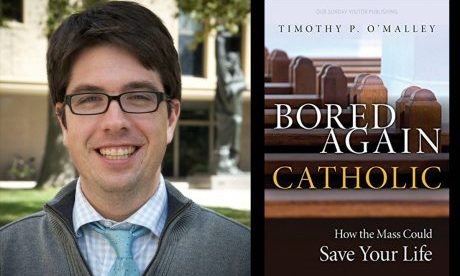Praying through the tedium at Mass can be a more authentic way of sharing the divine life.
As citizens of late modern life, we seek to avoid boredom. We alleviate the stillness of a quiet moment by turning to our smartphones.
We delight in the arrival of new emails, fresh stories and notifications from social media. Abiding in a world in which the “novel” is considered normative, we divinise disruption.
This approach to boredom has a negative effect upon religious practice among Catholics. In Catholicism, our liturgical life is unavoidably a bit boring (at least by the standards of the age).
We pray the same (or similar) Eucharist Prayers from Sunday to Sunday. We hear the same Scriptures from year to year. We sing along to the same hymns and chants. The gift of the liturgy is this same-ness.
Now some liturgical boredom is not praiseworthy. This “bad boredom” is a matter of kitschy art, poor music, bland architecture, flavourless preaching and general apathy that infuses both priest and assembly alike.
Our parishes should shun this bad boredom.
Likewise, bad boredom could simply be the case of an impoverished private prayer life. We may find the Scriptures dry and the Eucharistic Prayer banal, but not because they are.
Rather, we’re the problem because we have ceased to savour the narrative of divine love revealed in Christ.
But even if we got rid of all this “bad boredom”, we would experience tediousness in our life with Christ. For there is a good boredom that is intended to draw us more deeply into union with the triune God.
This positive sense of boredom is evidence of a desire to enter more deeply into encounter with the Word made flesh. This is the boredom of a restless heart that longs to rest in God alone. Continue reading
- Timothy P O’Malley, PhD, is director of the Notre Dame Center for Liturgy in the McGrath Institute for Church Life. He is also professor of theology at the University of Notre Dame, Indiana.
